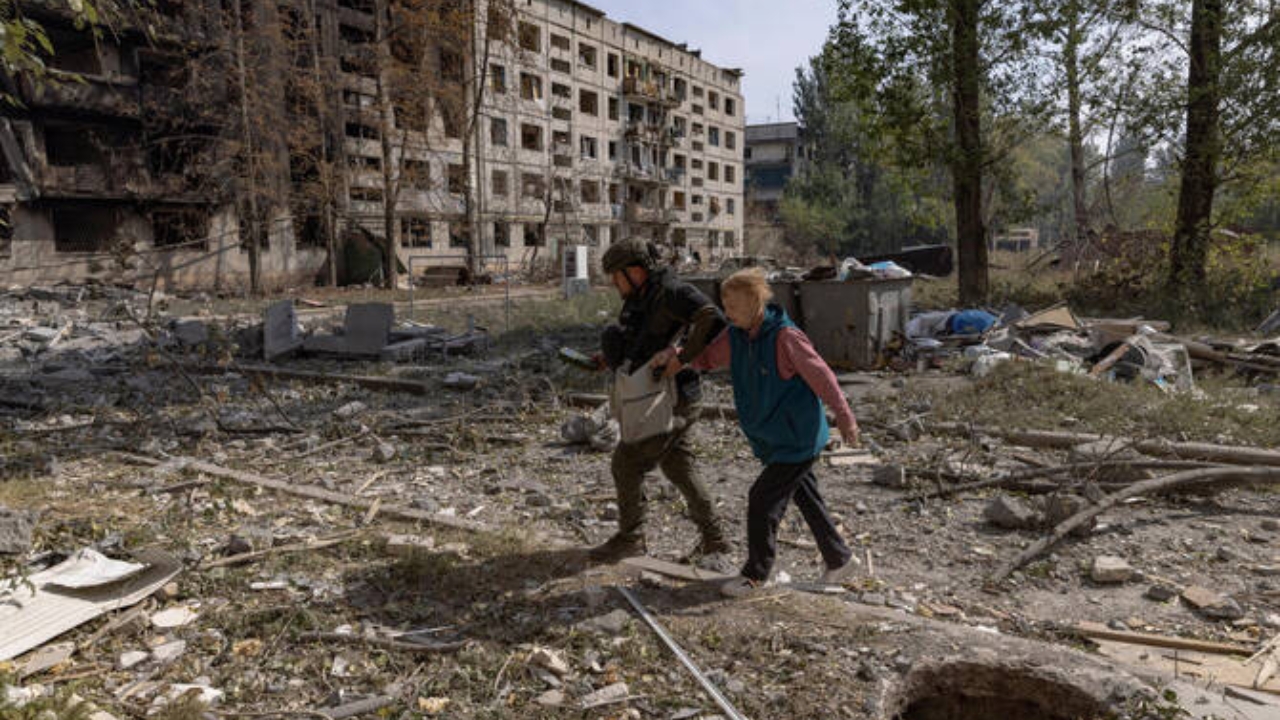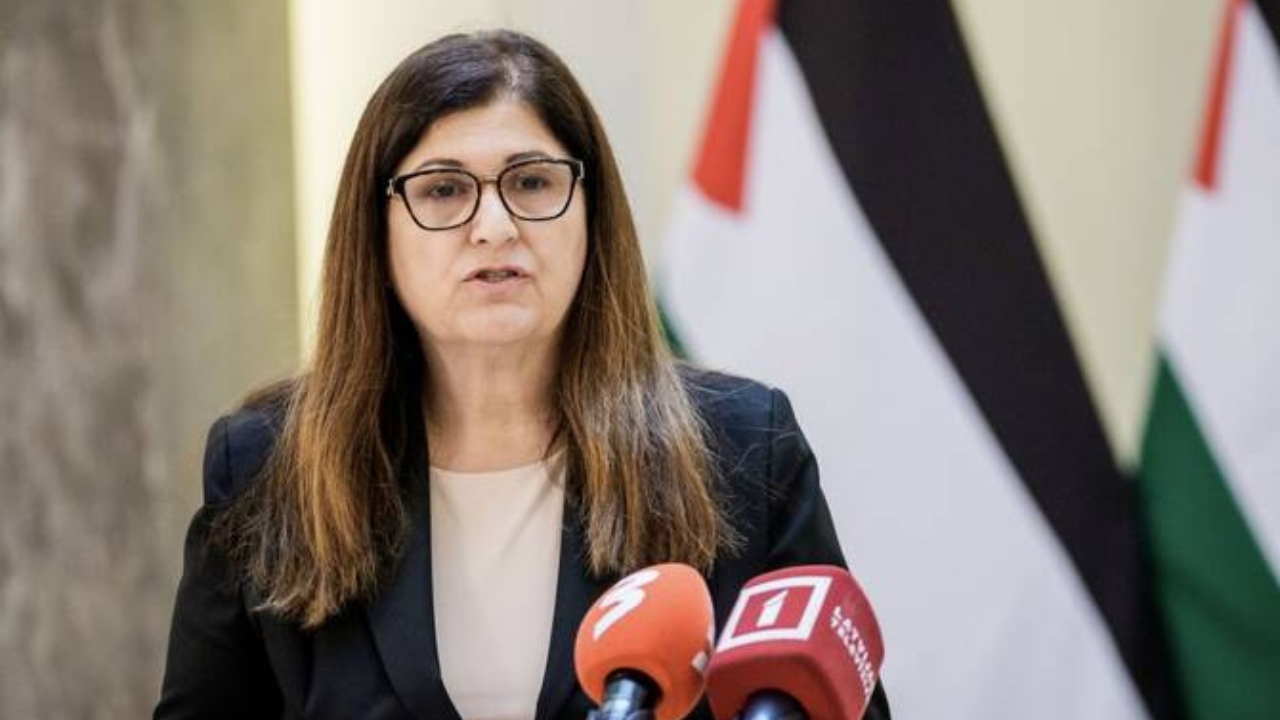
Russian Missile Strike Kills 5 Civilians in Ukrain
Russian strike kills five civilians in Ukraine's Kostiantynivka city.

Photo:AFP
The Palestinian Foreign Ministry has accused Israel of treating Gaza as if it were a piece of real estate. This accusation is not just about words. It is about an outlook that Palestinians believe exposes far deeper intentions — plans that could lead to displacement, destruction, and even genocide. To understand why this statement carries such weight, one must look closely at history, current events, and the long‑running struggle of Palestinians in Gaza.
The Heart of the Accusation
According to the Palestinian foreign ministry, Israeli leaders have increasingly spoken of Gaza in terms that resemble real estate development rather than addressing the home of over two million Palestinians. Political remarks being made in Israel suggest ideas about reshaping Gaza once the conflict is resolved. To Palestinians, this is not only insulting — it raises the fear that people, culture, and identity are being erased in favor of land and settlement plans.
The ministry argues that by discussing Gaza as if it were property that can be managed, bought, or repurposed, Israel undermines the reality that Gaza is a living society. Families, traditions, and centuries‑old connections to the land are being ignored. This language worries Palestinians because it suggests disregard for their existence and humanity.
Why Language Matters in Conflict
In any conflict, words often reveal intentions. For Palestinians, Israel’s choice of words is a signal that the struggle is not only about territory but also about identity and survival. Referring to Gaza as a real estate issue reflects an idea many Palestinians fear: that their homeland is being converted into an asset, not preserved as a community.
Such rhetoric is not simply careless language; it reinforces policies Palestinians describe as ethnic cleansing or gradual elimination. International legal experts stress that genocide is not defined only by killing but also by actions or intentions aimed at destroying a people’s culture and presence. Words can, therefore, become evidence of an intent to commit crimes on a large scale.
Historical Context of Displacement
Palestinians interpret such statements through the long shadow of history. The displacement of Palestinians has been a reality since 1948, when hundreds of thousands were forced to flee what became the state of Israel. Over the decades, many were never allowed to return to their original homes.
Gaza’s population is largely made up of refugees from that period and their descendants. For more than 75 years, they have lived under blockades, economic restrictions, and repeated cycles of violence. If Gaza is now discussed as real estate for new expansion or control, it reminds Palestinians of earlier dispossessions that stripped them of their homes and lands elsewhere.
The Present Reality in Gaza
Currently, Gaza faces one of the worst humanitarian crises in the world. Months of war have left tens of thousands dead. Infrastructure lies in ruins — hospitals, schools, water supplies, and electricity grids destroyed. For Palestinians, hearing Gaza described in commercial terms while people suffer daily starvation, homelessness, and fear is a harsh insult.
International aid groups have warned repeatedly that Gaza verges on famine. Families line up for hours for small amounts of food and water. Disease spreads quickly in refugee camps and shelters. In such conditions, calling Gaza real estate does more than deny the humanitarian catastrophe; it suggests plans for a future that excludes its current inhabitants.
Accusations of Genocide
The Palestinian Foreign Ministry’s strongest charge is that Israel’s approach amounts to genocide. Under international law, genocide means acts committed with the intent to destroy, in whole or in part, a national, ethnic, racial, or religious group. This can include killing, displacement, or policies designed to erase cultural identity.
From the Palestinian perspective, policies that treat Gaza as empty land to be reshaped are clear signs of an intent to destroy Palestinian life there. They argue that mass killings, forced displacement, and destruction of vital infrastructure already add weight to this claim. Speaking of Gaza in property terms is, in their view, further proof.
International Reactions and Responsibility
The international community has repeatedly debated whether Israel’s policies in Gaza meet the threshold of genocide. Several human rights organizations have raised concerns, pointing to direct attacks on civilian areas and the scale of destruction. While some governments continue to defend Israel’s right to security, others are calling for deeper investigations.
Palestinians argue that world silence in the face of such language and actions equates to complicity. They urge not only condemnation but also accountability. They ask the United Nations, the International Criminal Court, and world powers to examine whether Israel’s language reveals policy intentions that violate international law.
Why This Debate Matters Globally
The issue is not only about Israel and Palestine. It is about how the world defines and reacts to human rights violations. If the language of leaders treats a populated land as real estate, it sets a dangerous precedent. It suggests that occupied or war‑torn lands can be spoken of as property, with little concern for the people who live there.
This approach risks normalizing displacement and violence, allowing military power to dictate who has the right to exist in a territory. For global audiences, Gaza becomes a test case: will human dignity be defended, or will political interests outweigh moral responsibility?